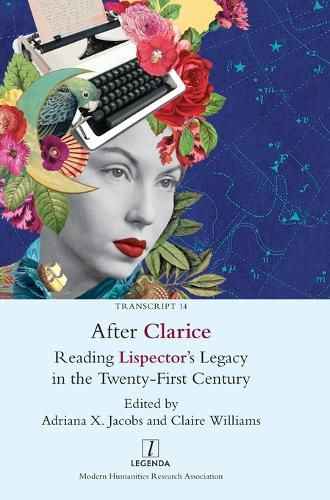Readings Newsletter
Become a Readings Member to make your shopping experience even easier.
Sign in or sign up for free!
You’re not far away from qualifying for FREE standard shipping within Australia
You’ve qualified for FREE standard shipping within Australia
The cart is loading…






This title is printed to order. This book may have been self-published. If so, we cannot guarantee the quality of the content. In the main most books will have gone through the editing process however some may not. We therefore suggest that you be aware of this before ordering this book. If in doubt check either the author or publisher’s details as we are unable to accept any returns unless they are faulty. Please contact us if you have any questions.
Forty years after her death, Clarice Lispector's startling oeuvre continues to fascinate readers and scholars. Internationally acclaimed writers, from Helene Cixous to Colm Toibin, have acknowledged the transformative influence of her writing on their own work. Translations of her novels and short stories appear every year in many languages, making her one of the most widely translated and retranslated Portuguese-language writers of the twentieth century. After Clarice: Reading Lispector's Legacy in the Twenty-First Century brings together scholars, authors, artists, and translators working in a wide range of languages and disciplines to address Lispector's place, as a Brazilian writer, in twenty-first century configurations of world literature. It aims to evaluate the fluctuations and swerves in Lispector's critical fortunes, focusing on the way her works have been reread and transformed in other languages, genres, and media.
Gathering scholarly articles, works of fiction and poetry, personal essays and archival material, this volume explores Lispector's status as a Jewish writer; issues of identity, class, race, gender and sexuality in her work; translation and reception, as well as the politics of publishing and marketing Lispector for international readerships. In addition to her stories and novels, After Clarice also examines Lispector's journalism, writing for children, interviews, music and visual art collaborations, and considers how these activities have garnered her new readers in a wide range of disciplines.
$9.00 standard shipping within Australia
FREE standard shipping within Australia for orders over $100.00
Express & International shipping calculated at checkout
Stock availability can be subject to change without notice. We recommend calling the shop or contacting our online team to check availability of low stock items. Please see our Shopping Online page for more details.
This title is printed to order. This book may have been self-published. If so, we cannot guarantee the quality of the content. In the main most books will have gone through the editing process however some may not. We therefore suggest that you be aware of this before ordering this book. If in doubt check either the author or publisher’s details as we are unable to accept any returns unless they are faulty. Please contact us if you have any questions.
Forty years after her death, Clarice Lispector's startling oeuvre continues to fascinate readers and scholars. Internationally acclaimed writers, from Helene Cixous to Colm Toibin, have acknowledged the transformative influence of her writing on their own work. Translations of her novels and short stories appear every year in many languages, making her one of the most widely translated and retranslated Portuguese-language writers of the twentieth century. After Clarice: Reading Lispector's Legacy in the Twenty-First Century brings together scholars, authors, artists, and translators working in a wide range of languages and disciplines to address Lispector's place, as a Brazilian writer, in twenty-first century configurations of world literature. It aims to evaluate the fluctuations and swerves in Lispector's critical fortunes, focusing on the way her works have been reread and transformed in other languages, genres, and media.
Gathering scholarly articles, works of fiction and poetry, personal essays and archival material, this volume explores Lispector's status as a Jewish writer; issues of identity, class, race, gender and sexuality in her work; translation and reception, as well as the politics of publishing and marketing Lispector for international readerships. In addition to her stories and novels, After Clarice also examines Lispector's journalism, writing for children, interviews, music and visual art collaborations, and considers how these activities have garnered her new readers in a wide range of disciplines.